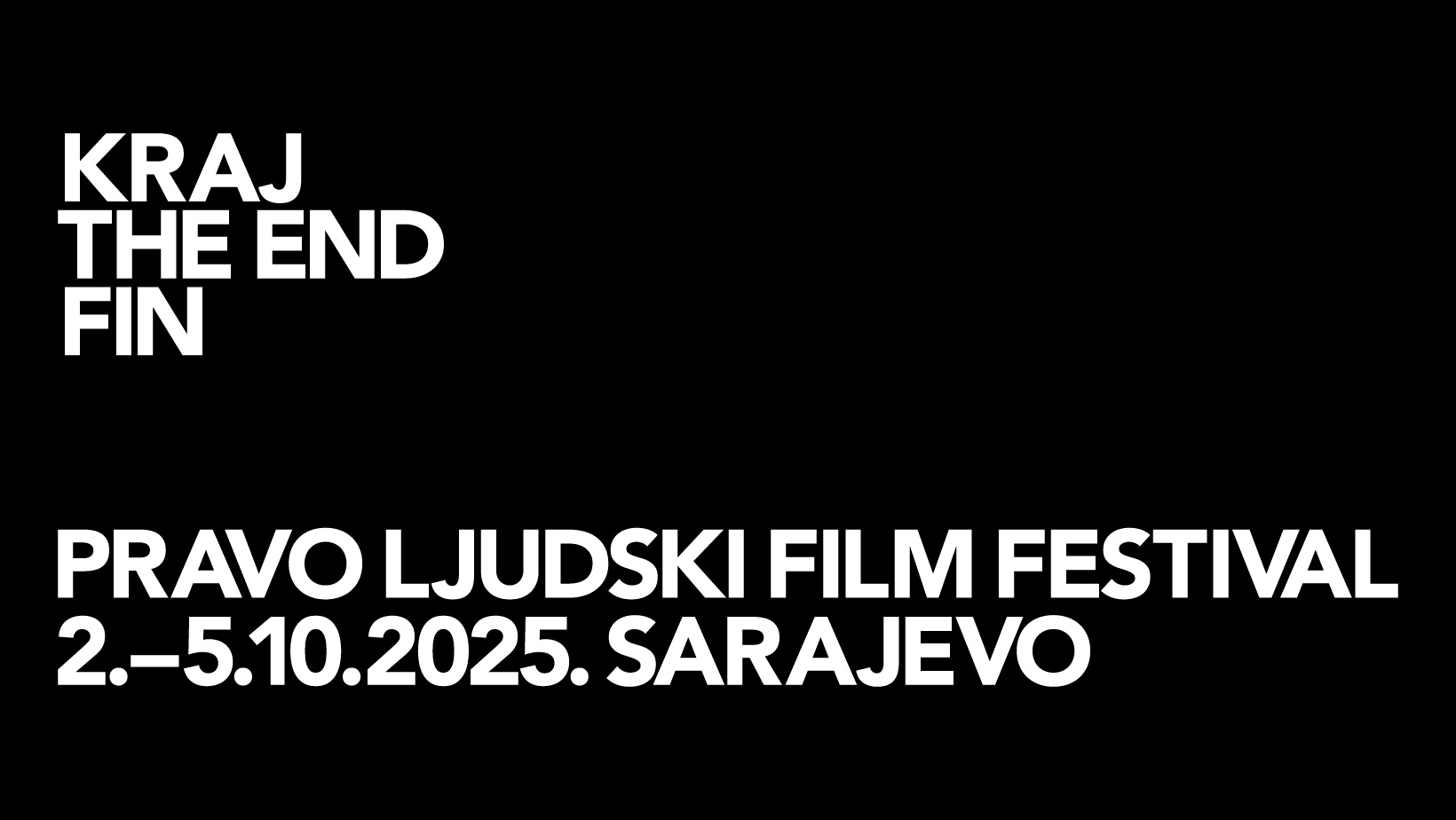
The 20th edition of the Pravo Ljudski Film Festival will take place from October 2 to October 5, 2025 in Sarajevo at the Meeting Point Cinema.
This 20th edition of PLJ is in the worst of times, in the many aftermaths of which we have kept on with our violent nature, and in the midst of a genocide of the most devastating kind we have ever known. To gather in a festival at such a moment can only mean to stand with these realities, and accept the end, our own end, and the end of the world, as the only way for a new beginning.
“For 20 years now, year after year, each autumn, we have been archiving survival over violence and imperialism. For 20 years we believed that film and film festival as a space of activating film solidarities could be the one space that will be critical in setting up the public tone. For the last few years it has become more and more difficult to live through that claim. The notions of emptiness – spatial, social, emotional – and the notions of ruination have been both prevailing and unsettling. One last step is to offer a programme that archives emptiness, and proposes that each form that fails should be and has to be abandoned. For we have to make space for new languages, new gatherings, new generations. Long live Kraj / The End / Fin, a new beginning is coming!” – shared the creative director and co-selector, Kumjana Novakova on the last edition of the Pravo Ljudski Film Festival.
This year’s festival program brings 24 films through four program sections that all intertwine and form a map that, complicating the times, rests on the idea of film solidarity, transnational connections in the production of images and anti-colonial practices and discourses.
Through the program Yugoslavia: Notes on Resistance and Liberation, we re-archive a portion of film documents that testify to a different kind of image circulation and production than the dominant ones today. These works remember lived structures of solidarity among peoples and remind us of the practices of building parallel cinematic infrastructures of resistance.
The program Palestine as a Collective Future: Notes on Resistance and Liberation #2 continues the programmatic line dedicated to Palestinian voices. By re-watching intentionally appropriated and destroyed Palestinian images of resistance – by watching the gaps and voids – we are reminded of the importance of repetition and persistence in seeking what has been taken from us. Through this program, we connect Arab archival and contemporary works, thinking about the significance of a common future and freedom that is only possible in this way.
Through the program From a Political World to the Politics of the World #2, we look at new works that connect similar and interconnected struggles of peoples at different geopolitical points across the world, questioning how – and whether at all – it is possible to find directions toward the future in this darkness.
The program The End / Kraj / Fin marks – or simply accepts – an ending. Marking the 20th and final edition of the festival, we carefully look into the festival’s archive and select titles that remind us of the importance of continuous curatorial work, which in this context has always existed beyond dominant and imposed narratives, thus carefully constructing a solid point of connection outside given frameworks – both cinematic and political.
The opening is with the screening of three films from the program section Yugoslavia: Notes on Resistance and Liberation: Blood and Tears, Jafra and We Will Win.
“Three films made in Yugoslavia, produced by Filmske novosti and Vardar Film between 1966 and 1976, document the anti-colonial struggles in Palestine and Mozambique and bear witness to the support that the people of Yugoslavia provided to the peoples in struggle. This is a period in which the practices of militant film mature throughout Latin America, the Arab world and Asia, which is based on the solidarity exchange of film equipment and workers, and aims to circulate a revolutionary image that calls us to resistance but also serves as a tool of emancipation for the wider masses. Unlike classic production structures, the cinematographer (Labudović, Popović, Cenevski) is the key figure here, who thinks about and records the image directly on the ground, often in difficult and dangerous conditions. Here, the film is not exclusively a product for further distribution for artistic purposes, but a testimony and document of the revolution. We are opening the festival with these films in order to reconnect these geopolitical points through the cinematic imagination and, at the very end, to consider whether there is a possibility for a new beginning for such an image, and what it means for us today.” – says Karla Crnčević, co-selector of the Pravo Ljudski Film Festival program.
We invite you all to join us at the Meeting Point cinema on October 2nd at 7 pm and share with us on the programme we have cooked..
The entire festival program is published on our website pravoljudski.org, and you can follow all information on our social networks – Facebook, Instagram.
PLJ20 #PLJ20 #pravoljudski